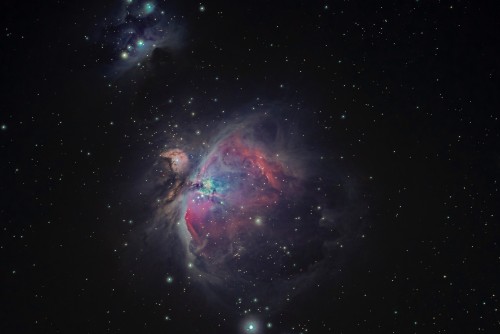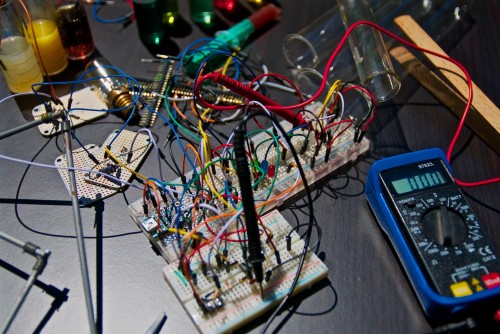From the vastness of the cosmos to the tiniest subatomic particle and everything between, the study of physics provides a framework for all other sciences. Physics is a place to be fascinated by everyday phenomena, to wonder at the immensity of the universe, and always ask “how?” Apply the principles of physics to astronomy and begin to discover how the world—and beyond—is made.
WHY STUDY PHYSICS & ASTRONOMY AT SEWANEE?
Physics and astronomy courses at Sewanee will provide a variety of opportunities for you to learn about the universe—from everyday phenomena through the vastness of outer space and minuteness of the nano-realm to the nature of the fabric of physical reality.
At Sewanee, a focused physics education fits naturally within the liberal arts and sciences environment that forms the core of the Sewanee experience. Taking physics and astronomy courses will help you develop a robust understanding of fundamental physical principles—the essence of “how the world works”—as well as valuable reasoning, problem-solving, and experimentation skills. You’ll delve into advanced theoretical topics, utilize research-grade instrumentation, participate in faculty-led and independent research projects, both on campus and at other institutions. Maybe you'll even discover new asteroids or comet fragments.
As a student of physics at Sewanee, you'll have the chance to make new discoveries and have your findings published on Minor Planet Center database, the single largest location for documenting minor planets and comets. Using Sewanee's Cordell-Lorenz Observatory, one of the top 50 observatories in the world for new discoveries, students will be able to implement state-of-the-art equipment and explore the universe.
Be enthralled by the world around you. From modern-day technologies to the minuteness of the nano-realm, the study of physics will fuel your curiosity. You’ll get to join professors in scholarly pursuits like hunting for asteroids and extrasolar planets, learning about nuclear physics, and the simulation, fabrication, and optical studies of functional nanomaterials.
FIRST DESTINATIONS: Physics MAJORS
Sewanee graduates secure positions is a variety of fields. Some you would expect, others, are a bit of a surprise. Sewanee prepares you for your profession and your passion. Below is a sampling of recent graduates' first job.
- Quality Technician, EC Manufacturing, Kansas City, KS.
- Ecology Intern, U.S. Forest Service, Athens, GA.
- Research Intern, Tall Timbers Research Station, Tallahassee, FL.
GRADUATE SCHOOL & PREPROFESSIONAL PROGRAMS: Physics MAJORS
Sewanee graduates enjoy extraordinary acceptance rates to top graduate and preprofessional programs–about 95 percent to law school and over 85 percent to medical school. Below is a sampling of where Sewanee grads continue their education.
- Ph.D. in Astrophysics, Boston University.
- Ph.D. in Physics, University of California, Davis.
- Ph.D. in Physics, University of Michigan.




